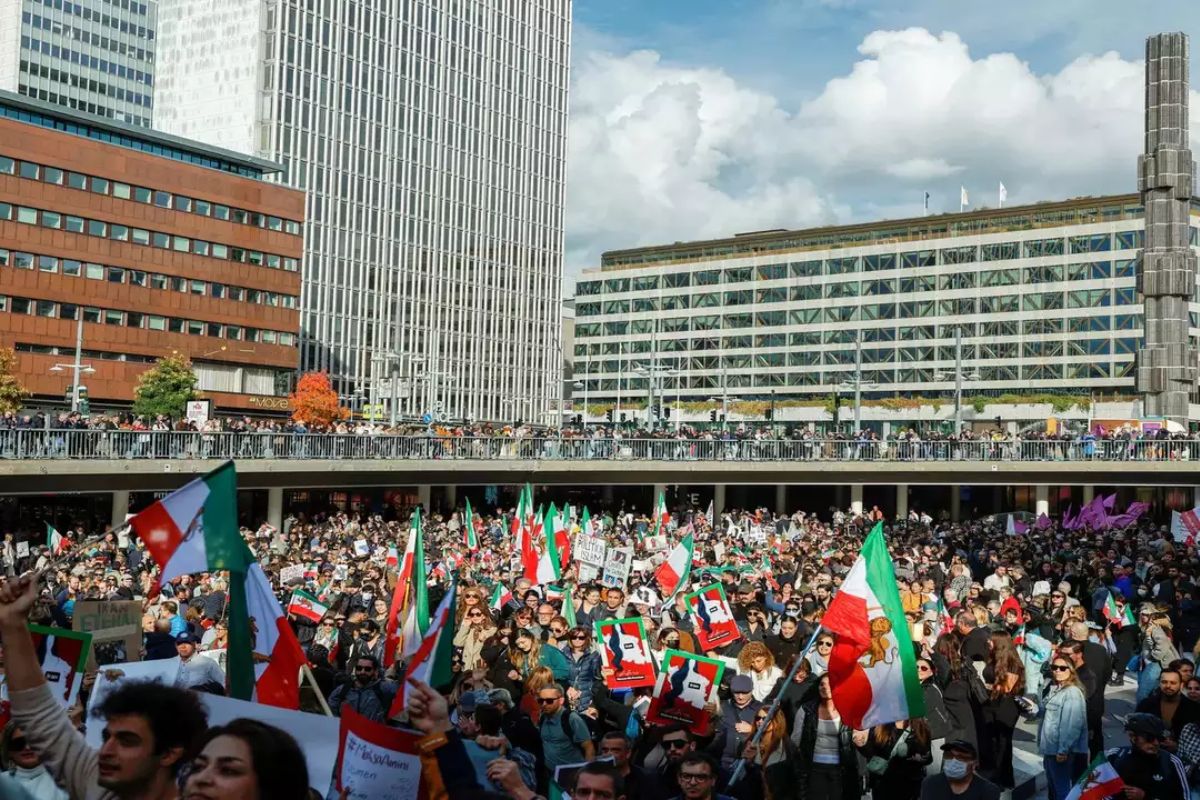[web_stories title="false" excerpt="false" author="false" date="false" archive_link="true" archive_link_label="" circle_size="150" sharp_corners="false" image_alignment="left" number_of_columns="1" number_of_stories="5" order="DESC" orderby="post_title" view="circles" /]
Iran Protests: the Death Toll Rises to 76 as Repression Escalates, According to a Human Rights Group
According to campaigners, at least 76 demonstrators were slain by Iranian security forces during an 11-day uprising prompted by the death of a lady in jail. Iran Human Rights (IHR), a Norwegian-based organization, accused authorities of suppressing dissent with disproportionate force and live bullets.
State media reported 41 deaths, including numerous security personnel, and blamed “rioters.”Hundreds of people have been arrested, including 20 journalists. “The risk of torture and ill-treatment of protesters is grave, and the use of live ammunition against protesters is an international crime,” said Mahmood Amiry-Moghaddam, head of IHR. “The international community must defend the Iranian people’s fundamental rights demands.”
The UN human rights office also expressed worry about the authorities’ brutal response and asked them to respect the right to peaceful protest. Since the funeral of Mahsa Amini on September 17, anti-government protests have extended to more than 80 cities and towns across Iran.
On September 13, a 22-year-old Kurdish lady from the northwestern city of Saqez was arrested by morality police agents for allegedly breaching the tight legislation requiring women to cover their hair with a hijab, or headscarf.
She died in hospital after three days in a coma after collapsing after being transferred to a prison center to be “educated.” Ms. Amini died of sudden heart failure, according to police, but her family disputes this and claims she was abused by authorities. ‘They threatened to rape us if we didn’t keep silent,’ says one Iranian protester. Iran is facing its most significant crisis in years.
Protests against the morality police and the hijab requirement sparked by her death swiftly became the most significant challenge to Iran‘s Shia Muslim religious leaders in years. To shouts and screams of “Women, life, freedom” and “Death to the dictator” – a reference to the Supreme Leader, Ayatollah Ali Khamenei – videos on social media have shown women bravely burning their headscarves on bonfires and cutting their hair in public.
Protests were reported in Tehran and a number of other towns on Monday, including Yazd in the country’s center and Tabriz and Sanandaj in the north-west. Students and faculty at around 20 universities also went on strike and walked out of class.
As of Monday, Iran Human Rights has recorded the deaths of 76 demonstrators across 14 provinces, including six women and four children, though it noted that internet restrictions were causing delays in reporting. Thirty-five deaths were reported in the northwestern provinces of Mazandaran and Gilan, and 24 in the Kurdish-populated provinces of West Azerbaijan, Kermanshah, Kurdistan, and Ilam.
According to IHR, footage and death certificates received confirmed that security personnel was firing live ammunition directly at protestors, something Iranian officials have denied. Iranian authorities have also reported the arrest of around 1,200 persons.
Faezeh Hashemi, the daughter of former Iranian President Akbar Hashemi Rafsanjani, was detained by security forces on Tuesday, according to Iranian state media. Ms. Hashemi is a vocal opponent of the Iranian establishment. The Committee to Protect Journalists, located in the United States, urged the release of at least 20 jailed journalists and bloggers, as well as human rights advocates, attorneys, and civil society activists.
“Iranian security forces must stop coercive measures against journalists telling this essential narrative and restore necessary internet connectivity to keep the population informed,” the CPJ urged. According to the BBC’s Kasra Naji, the disturbance has strained security personnel to breaking point, with the head of the court shown in one video declaring that riot police had been deployed “24 hours a day” and that “they did not sleep last night and the nights before.”
According to our correspondent, security forces are also having severe reservations about dealing with the demonstrators. The head of the capital’s riot police was seen instructing his men not to be afraid and to fight the protestors, just as Iranians did against invading Iraqi forces in the 1980s. Meanwhile, President Ebrahim Raisi has spoken of the necessity to “take decisive measures against opponents of the country’s security and tranquility.”
Keep an eye on our website, which may be accessible at unitedfact.com, if you are interested in receiving additional information on upcoming developments.



Comments are closed.